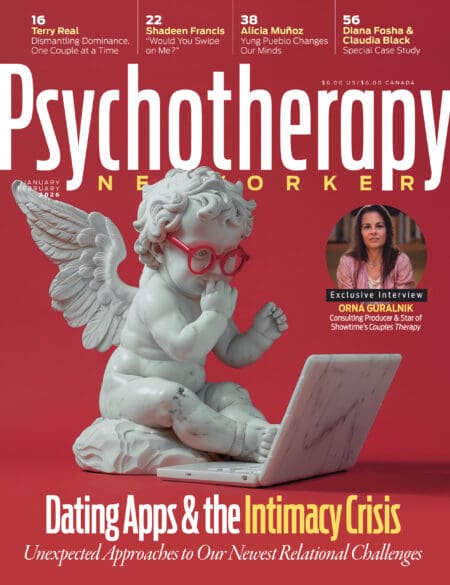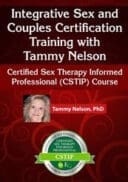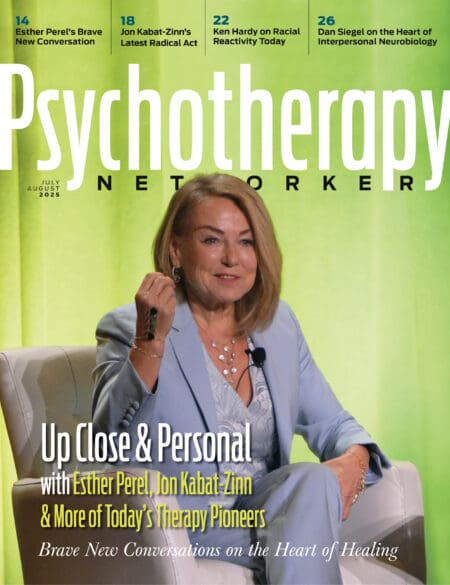Enjoy the audio preview version of this article—perfect for listening on the go.
With my right foot planted firmly on the floor and my left heel just barely off the ground, my body leans slightly to the right when I pee.
Newly awakened to this startling discovery, I notice that whatever remaining weight the left foot still supports has been transferred to the toes there. (The function of those toes seems to be less about bearing weight than it is about maintaining my equilibrium.)
My pants. I put them on . . . well, let’s see, how do I put them on? That’s right, invariably, left leg first. Shirts? Invariably, right sleeve first. Teeth? Invariably upper-left outside first, then moving across the upper-front to the upper-right side, then . . . well, take my word for it, without my walking you through the whole thing, there’s a fixed and, yes, invariable pattern whenever a toothpaste-bearing brush enters my mouth.
These habits I have—why “invariable”? Why the left leg and not the right? Why the upper-left outer (or as my dentist calls it, “buccal”) side and not the lower-right “lingual”? Was I taught somewhere along the line to behave this way? Is being a righty at the core of it all? Does the fact my left leg was injured years ago affect any of this? Does laziness play a part? Am I yearning for security through familiarity, a shield against the unknown? Or is there just no answer to why?
While the specific steps I follow in how I piss or dress or brush appear to be as thought-free—as mindless—as the erratic throbbings of an amoeba, the daily decision to engage in these everyday acts in the first place is somewhat more conscious. I say “somewhat” because—while I am mostly aware of the impulse to initiate each of them, and while each day I more or less decide when exactly it’ll be that I perform them—once I do commence doing these things, the routine that kicks in is as rigid and inflexible, as seemingly automatic, as the repetitive motions programmed into a robotic device on any assembly line anywhere.
But, of course, that can’t be the whole story.
Take, as a counterexample, my heart. My heart beats and beats and beats and is going to go on beating and beating and beating and beating, without my slightest intervention, until that inevitable moment comes when it will stop. Permanently.
Here’s another one: my lungs. My lungs will likewise soldier on, thanklessly doing their indispensable job for the same amount of time. They, like so many of my physiological processes, truly are automatic. Without requiring a moment’s thought, without any choice involved, they allow my very being to exist. If anything can be described as “thought-free,” they certainly can.
In contrast, though, to my purely biological functioning, the remainder of my waking life transpires (allegedly) in the land of consciousness. While so much of how I behave as I make my way through my daily routines may, in retrospect, appear to be similarly thought-free, on closer inspection, I see that’s not the case. I do, at various rare and random moments, enlist a modicum of consciousness to carry out what at first blush appears to be my trancelike behavior. What initially appear to be invariable routines really aren’t; they’re simply unvaried. These behaviors aren’t as irremediably fixed as my inattention has allowed them to become. As conscious acts, they’re subject to change and, therefore, I can change them.
Can’t I?
I experiment, starting with pissing.
As I start to play with this (how I stand, I mean), and plant both feet flat on the ground, I notice an indescribable momentary inner readjustment to the urinary flow, but then, I’m extremely relieved to observe, the process resumes, as it always has in the past, as it may (please!) continue to do so in the future.
Inspired and curious, I next move on to scramble the order in which I dress myself and then do the same with the well-established sequence in which I clean my teeth. While it’s surprisingly unsettling to go against these grains of history, I discover . . . that I can. The power I feel isn’t quite Herculean, but it’s palpable.
How many other aspects of my life, I wonder—habits performed on autopilot, seemingly fixed and unchanging, yet waiting for some effort to upend and overthrow them—share in this faux automatism? Plenty.
Plenty more wherever these came from: little bits and pieces of me in action, ingrained and formulaic, which in large measure constitute . . . me. I’ve rarely given them the slightest thought. But then again, why should I? They seem to work, and they don’t seem to matter that much. (I don’t think they do, anyway.) In their regularity, they provide a zone of safety in a chaotic universe. Were I to modify them—as I did when I remembered to stand up straight in the bathroom, or as I did when I moved my toothbrush first to the right side of my mouth—I don’t think my life would change very much. Yes, there’s always a buzz in simply altering any element of your life. Anything that breaks you out of a stale pattern, anything that’s new, has the potential to make you aware of you in a new light. (It’s what vacations are supposed to be about.) So who knows? With an increase in ambidexterity, maybe I’d feel freer, more balanced, less one-sided. And who knows where all that change might lead me?
To the movies?
Or maybe, instead, away from them?
—–
If a habit is a way of acting that, unconsciously and often compulsively, becomes fixed through repetition—an acquired mode of behavior that’s become nearly or completely involuntary—then a mode of behavior that’s followed regularly and usually through choice might be termed a “practice.” For me, going to the movies is a practice.
I go to the movies. A lot. I regularly check out reviews, ads, entertainment news, the whole infotainment circus, in a vain attempt to keep abreast of the humongous tsunami of audiovisual material that comes charging at us at an ever-accelerating velocity with each passing day. This whole part of my life was way easier to keep up with when there wasn’t so much damn “product” to keep track of. And while movie-going isn’t anywhere near as reflexive and thought-free as pants-donning or teeth-brushing, the practice recurs sufficiently frequently (three, four, five times a week?) that its repetitive quality makes it their not-too-distant cousin.
Why? Why do I go to the movies a lot? Sure, for entertainment, for aesthetic pleasure, to escape, pass the time. But, in another way, the explanation for this practice of mine is as mysterious and tautological as the reason for the semiconscious behavior I engage in when I dress myself or brush my teeth, that is: I go to the movies a lot because going to the movies a lot is a habit I’ve developed, a habit so strong that the urge to see a movie at times feels like a need I’ve been programmed to fulfill.
Of course, over time, as any particular pattern of behavior becomes ever more ingrained and thoughtless, the day may arise when you suddenly wake up to find yourself metaphorically pacing back and forth, confined to a prison cell that pattern has built around you.
I’ve somehow permitted the principle of automatism—the principle my heart and lungs not only symbolize, but literally embody—to creep into not just movie-going but all kinds of corners of my life: Email Maintenance, Catching Up On The News, Gym, Email, Relationships, Alcohol, My Relationship To Alcohol, Email. Somehow I’ve let my practices devolve into habits, unconscious and often compulsive habits, with little room left for the spontaneous and the unexpected, little room left for choice. Unthinking behavior—trance—becomes not merely the model, but too often the default, and at times even worse: the only modus operandi for the balance of my life. With age, these patterns have become even more encrusted, more tiresomely predictable. Laziness and inertia assume command, coaxing me to believe “If it ain’t broke, don’t fix it.”
But, whenever I awaken from a trance, “whenever,” as Melville wrote, “I find myself growing grim about the mouth, whenever it is a damp, drizzly November in my soul,” I see what I’ve never seen before (never seen, that is, except for what I saw all those other times in the past when I awakened from a trance that some other unvaried pattern of behavior had put me in), and what I see is this: “it” is broke . . . and “it” must be fixed. And, in fact, it’s broke because it’s fixed (i.e., unchanging).
When routines and habits and practices become as lifeless as the manner in which one brushes one’s teeth, when the choreography of one’s existence resembles a blindfolded slog through quicksand rather than the Jets and the Sharks leaping across the streets of the Upper West Side, something must be done.
—–
Some years ago I quit the job that had become my prison, and every year since then I’ve shut myself up for a month or so at a monastery in Europe. I first decided to do this crazy thing because an inner voice—a voice constantly squelched by the habits and practices which have crystallized into that series of obligations that constitute my life—was screaming hoarsely that it needed to be heard.
Each year when I arrive, I say goodbye to all those habits and practices—email, meetings, meals, alcohol, scheduling, relationships, movies, email (in a word: people, but in a better word: myself)—and say hello to books, writing, silence, isolation (in two words: another self). I begin to reexperience the pure rapture of being alive.
Life—speaking, eating, walking, breathing—it all slows down, as does my brain. If I have to perform or remember the slightest task, I must write it down: a note to the kitchen if I’m skipping meals that day or not, a note to myself to buy some rice cakes or pick up a postcard or two for the folks back home.
When I return to seclusion each year, I relearn a horrifying truth about myself: I’m a creature of my surroundings—that is, I become the self that’s habituated to the particular environment I find myself in, conditioned to behave the way I do. Within the cloistered confines of the monastery, there are no movies to go to or miss or feel bad about missing, and all that other stuff back home—email, food, refrigerator, snacking, talking, restaurants, alcohol, email—is nowhere to be found. And, therefore, too, almost nowhere to be found is the self who habitually is a servant to, and habitually identifies himself with, all that stuff back home. In his place, another self, a writing/reading/inner-directed self shows up—and does so almost instantly upon arrival, as if a personality-transformation switch has been thrown. That self, the one who’s dormant in my everyday life, starts to pay attention to the inner voice I rarely hear, let alone listen to.
At times, the two selves battle it out.
“Why,” one self asks the other, “am I cooped up here, hidden in this college dormitory-sized room, not drinking, barely eating or talking, forced to sleep on a marshmallow-soft mattress that makes my back even worse than it already is? Look at what you’re doing,” he goes on, “you’ve built yourself yet another prison cell.”
Every so often, my other, newly awakened self, nestled in with and awed by the simple act of reading a book, will pipe up: “How can you permit all those other stupid habits back home to crowd you so much that you can’t find the time to be alone and read a goddamn book? How is that possible? Now in my golden years and an official member of AARP for more than a decade, how can you let that happen?”
No matter how furiously my cranky habitual self has it out with his more mellow counterpart, satisfactory answers to those questions—like the ones I ask myself about why I dress or brush or piss the way I do—never come.
Oh, and there’s another horrifying truth that hits home each year: given the slightest opportunity (and I always seem to find one), I transform even the most pleasure-bestowing experience into a mandatory assignment, a resented obligation. By virtue of this magical transforming talent of mine, even the break that “going to the monastery” represents, has, over the years, acquired the taint of a habit as lifelessly regimented as anything I’ve left behind in New York City.
—–
The monastery I go to is actually a convent, one that welcomes guests, or “retreatants.” The sisters’ daily schedule—for food, work, prayer, and rest—runs literally like clockwork and, in contrast, makes the one I follow at home seem like the epitome of spontaneity. For example, the sisters pray, religiously, at 7:15 a.m., 12:15 p.m., 6:30 p.m., and 8:30 p.m. (Some days, even more.) They pray in French. I don’t understand French. That’s a godsend. No chance word or phrase can ever accidentally hook me into feeling obligated to pay attention to what they may be saying, or chanting, or singing. (I, stupidly, feel my ignorance is as freeing to me as their ritual is to them.)
But it’s their unflinching relentlessness that fascinates me. Each and every one of their 365 days is scheduled so that other activities work around the times for prayer. The invariable repetition of these worship sessions seems to relieve the participants of the burden of thought, doesn’t it? I sometimes think of them as addicts hooked on a drug, even as I realize that addiction involves a lack of control—the way I sometimes feel about going to the movies, or having a drink—unavoidable behavior that limits or diminishes you in some way.
While their behavior may seem constraining to the outsider (i.e., me), to the sisters themselves it’s that very constraint that’s the source of their most exquisite pleasure, the most empowering aspect of their lives. Their routine, yes, is a given: unquestioned, unquestionable, like breathing. Just as the boundaries imposed by the limitations of a particular form or style or medium have the paradoxical power to expand the creative imagination of an artist, the sisters’ regimented discipline brings them freedom. If my habits render me somnambulant, theirs are revivifying and joyous. The prison they’ve built for themselves somehow makes them queens of infinite space, and leaves them, in the best sense of the word, intoxicated.
—–
Maybe it was my lack of intoxication that brought the act of pissing back into my awareness, for one of the several goodbyes I say when I enter the monastery each year—and perhaps the most significant—is to alcohol.
How can I describe my relationship to alcohol and the habit of automatic drinking that over the last four or five decades has characterized almost every meal I’ve eaten (and, often, the time between meals as well.) Voracious would be an indispensable adjective—a voracious imbibing whose mandatory next step after finishing a glass or a bottle would be to down yet another glass or another bottle. To the casual observer, only my suffering a thirst like that of a wild-eyed cartoon figure who’s crawled across the desert for days, utterly parched, and now, finally, has reached the edge of a heaven-sent watering hole could possibly explain how desperately I kept pouring and swallowing and pouring and swallowing whenever there was wine to be drunk.
But my thirst was purely metaphorical. Was there a reason for my habitual, almost furious, drinking? For every potential explanation I came up with there were at least three more waiting in the wings: to quell anxiety, numb a low (sometimes high) level of despair, mask social awkwardness, bury rage, satisfy an unresolved oral stage of development, punish myself, get high? Sure. And more where those came from. But maybe the real explanation was as mysteriously tautological as why my right arm—and not my left—went into a shirt first: that is, I drank incessantly because I had the habit of drinking incessantly.
Most nights under the influence I did no more than fade slowly away and eventually pass out without serious incident, but there were a number of doozies over the years that left me just this side of dead—bedridden for a lost day or two with excruciating headaches and remorse, three times in the hospital, aches, pains, hurts, hurt feelings, broken bones, blackouts, memory gaps, embarrassments. The pile grew higher as the decades wore on, and yet, despite all the times I’d wound up wounded or wounding others, I’d continue drinking, as mindlessly and automatically as if nothing had ever happened, ever could happen. Indifferent to the risks, I’d at times drive in a stupor (once for 40 miles past my destination) as if I were immortal. I was persistent and relentless in my inane self-destructiveness.
As I said, I had the habit of drinking incessantly—until I did not. At the monastery each year, I stop drinking. The stopping occurs automatically on arrival when that personality-transformation switch is thrown, and for 14 years I’ve returned home after a month of not drinking and found not the slightest urge to resume the habit. Time (a week or two) would pass before I’d even delicately sip a glass, savoring it. In control. Aware. A connoisseur, not a wino. But time would continue to pass and within another week or two, the raging omnivorousness would have me in its control once again and, aware but unaware, I’d soon be drinking glass after glass, bottle after bottle, as if compelled to keep doing so, as if each drink were my last, as if I were once again that unshaven cartoon figure who’d finally found his oasis under the baking sun, as if the alcohol were what was keeping me alive, as if the failure to have another drink would end my life. The whole cycle was as predictably certain to run its course as was the saliva dripping from his dog’s mouth whenever Pavlov rang his bell.
But this year, for probably no other reason than that I’ve managed to continue to refrain from having that first sip for several months, I’ve somehow managed to continue to refrain from having that first sip now for several months, thus rendering me sober for the longest period of time since the Johnson Administration.
And what’s happened during these several months since I gave up the alcohol habit? When I first reentered everyday life in the environment I’d habituated myself to drink in and nonetheless continued to abstain, I was amazed. How thrilling to possess the ability to change and actually exercise it—as I did when, after years of smoking (voraciously, as well) I finally stopped. Unlike how I felt when I altered the order in which I brushed my teeth, the sense of achievement was immense. Without much effort, I’d somehow willed myself onto the unknown terrain of a brave new world.
Then what? The new world soon became old. Over time (a few weeks, at most) not drinking had itself become automatic, and a new kind of thoughtlessness had taken hold. If not yet a new prison, I’d constructed a new habit—the habit of not drinking.
But then, a surprise. Another habit/prison took shape—desserts. And then still another—Diet Coke. Who’da thunk it? Diet Cokes and desserts! Things I at first started sampling with the delicacy and curiosity with which I’d once sampled a glass of wine on my return to everyday life, things I’d rarely, if ever, put into my mouth would find themselves in there with ever-greater frequency, as if the urgency that had formerly compelled me to overdo alcohol had now been affixed to them.
These new sugar and sweet-based habits have over the last few months become so ingrained, I begin to wonder, did I ever drink? That very real lifelong habitual behavior now seems almost like a dream, as if it never happened. The former triggers—meals, other people—that used to say, “Drink!” still bear an associative charge, but one so weak it’s not too difficult to resist. Avoiding the negative consequences of drinking have been unarguably beneficial. Fewer headaches, yes, though there are still some (what the hell is in Coke Zero, anyway?) and less bloat, fewer embarrassing moments, and not a single fall or physical injury to speak of. But the positive payoff of not drinking is, in fact, so thin—I don’t feel that much lighter, and not at all more alert—that I sometimes feel, hey, fuck it, why not get that buzz again, the biting tingle on the tongue and palate, the light emptiness in the head, the macho posturing of holding a glass? But so far I haven’t.
Right now, the old habit of drinking seems no more fulfilling than the new one of abstaining, so it doesn’t feel like I’ll be forsaking sugar-free soft drinks for the cozy familiarity of Chardonnay any time soon, but who knows? The liberation of kicking a habit is so fleeting that before you know it, you’re back to your old tricks—in trance—so the time may come again when this new habit needs a kick or two. What’s clear, though, is that there’s no resting place, no Free Parking square on the board where you’re immune from the threat of letting life go by unmindfully.
All you can do is stay as awake as you can and question every damn habit you wake up to.
Except one: the habit, if you’re lucky enough to find it, that so sustains and transports you, so feeds you, that no matter how long you find yourself in thrall to it, the emotional payoff, or the creative one, or both, stays fresh and alive. Art. Serving Others. Love. Religion? Maybe there’s even another. I’m still looking.
What the story’s going to be next week or next month I can’t say, but as of this writing, I pee leaning to the left.
Illustration © Warren Gebert / Illustration Source
Fred Wistow
Fred Wistow is a former contributing editor to the Psychotherapy Networker and lives in New York City.













